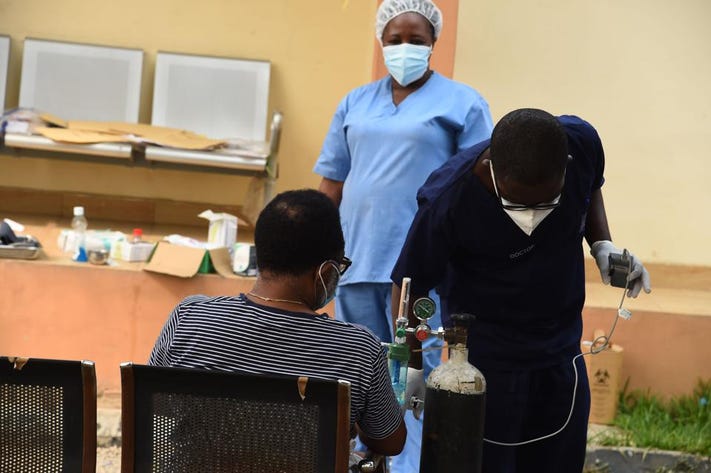There are no products in your shopping cart.
| 0 Items | £0.00 |


THREE cases of the new dreaded Omicron variant of the Covid-19 virus thought to have originated from South Africa has been detected by the Nigeria Centre for Disease Control (NCDC) in Abuja.
First detected in South Africa, the omicron variant is believed to have more mutations than previous Coronavirus strains. This could make it more contagious and possibly more resistant to vaccine immunity but researchers say much remains to be learned about Omicron but for now, precautions should be taken.
NCDC director-general Dr Ifedayo Adetifa, said: “The Nigeria Centre for Disease Control conducts case and genomic surveillance for inbound international travellers arriving in the country at its National Reference Laboratory (NRL), Abuja and a network of other testing laboratories. Sequencing of samples from Covid-19 positive inbound travellers is currently conducted in laboratories with sequencing capacity in the country and all the sequencing data are shared in publicly accessible databases.
“This genomic surveillance has now identified and confirmed Nigeria’s first cases of the B.1.1.529 SARS-CoV-2 lineage, now known as the Omicron variant. Samples obtained for the stipulated day two test for all travellers to Nigeria were positive for this variant in three persons with a history of travel to South Africa.
“These cases were recent arrivals in the country in the past week. Follow-ups to ensure isolation, linkage to clinical care, contact tracing and other relevant response activities have commenced and arrangements are also being made to notify the country where travel originated according to the provisions of the International Health Regulations.
“The NCDC assumes Omicron is widespread globally given the increasing number of countries reporting this variant, therefore, it is a matter of when, not if, we will identify more cases. We continue to expand our sequencing capacity in-country at the NCDC-NRL, through our network of public health laboratories and other partners."